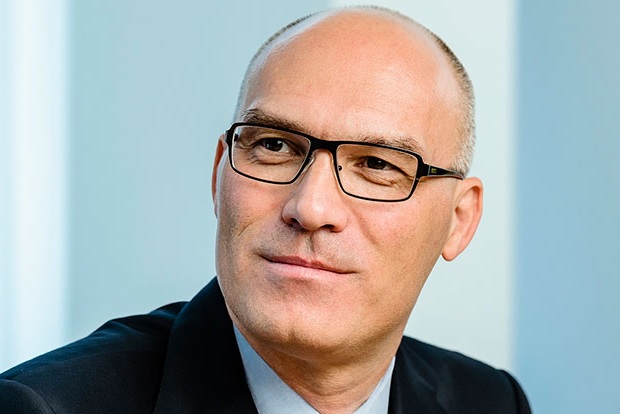Vendors concerned about ailing bottom lines are guilty of overhyping 5G, Vodafone’s Group CTO has warned, as he predicted smartphones rather than enterprises that will drive the first flush of the market.
Johan Wibergh spoke to Mobile Europe after NGMN’s press conference today at Mobile World Congress, where operators presented a united front on 5G, just months after locking down the standards of 5G non-standalone New Radio technology.
Wibergh said there needs to be greater focus on 5G’s benefits over the longer term, and that use cases and eye-catching functionalities will not be available from 2020 but five or maybe even 10 years later.
He said he expected the first true 5G commercial products to be based around personal hotspots, a view shared by members of the panel he sat on earlier. He added: “But the most important thing is smartphones and that will create the economics.”
Such an opinion does contrast with the consensus that 5G will be very much an enterprise focused technology. Wibergh did not argue against that belief, suggesting instead that enterprise will come together in bursts over a number of years, rather than a big bang of use cases.
He added: “We are back to the point about the length of time. If you look at the enterprise market, many of these requirements can be done already by 4G, whether it’s NB-IoT or Cat-M.”
Because 5G will be used over a longer period, he said it is difficult to gauge exactly when the tipping point for widespread enterprise use cases will be. He raised the point about a smart city, asking the rhetorical question of at what point of connectivity deployments do we consider a city to be smart?
Part of the problem with expectations appears to be the wider clamour about how 5G will change everything. Anyone walking the aisles of the Fira this week would have seen hundreds of videos excitably talking up seemingly infinite 5G use cases.
When asked whether he or other operators have had to battle internally to temper expectations about 5G, Wibergh replied that there is a united front among operators about this technology. Indeed, some operators, Wibergh included, have been somewhat circumspect about 5G and not letting the hype get out of control.
[Read more: Vodafone Group CTO: 5G foresight required to make tech a cash cow]
Wibergh said today: “In the operator world, we are much more aligned but I would see many of the stronger statements from the vendor community.
“The market outlook for them is a little bit more challenging so it’s natural for them to talk about it a lot and maybe overhype it. But we need to be sensible when we talk about 5G…I’m concerned about the wrong message coming out.”
An hour earlier, Wibergh joined counterparts at Deutsche Telekom, Korea Telecom, NTT DOCOMO, TIM and US Cellular to discuss where operators move next after standardising 5G New Radio technology late last year.
That standardisation removed a lot of the fragmentation risks that operators feared, the panel said. The next challenge is spectrum, with Sandro Dionisi, Director of Engineering & Telecom Italia Lab, TIM, arguing sub-6GHz bands are critical, in addition to millimetre wave.
The next priorities are within network slicing. Dionisi added: “Network slicing is the real path to and core of 5G. It’s vital those [use cases] are developed according to the different scenarios for 5G. It’s eMBB but with low latencies and ultra-reliability.
“But we also have to ensure security. We have set up a special team to make sure security is taken into account.”
Elsewhere, it was the familiar concerns from operators cautious not to get burned by overpromising on capabilities, overpaying for spectrum, and underdelivering with what hits the market.
Vodafone Group’s Wibergh summed up the consensus view: “If spectrum is more expensive we will never see 5G’s true effectiveness. That’s a big question.” He added: “We don’t have more money to spend, if anything we have less money. That’s the reality.”
It appears like this is even the case across the Atlantic Ocean, where operators had seemed keen to race ahead with 5G launches. Michael Irizzary, CTO at US Cellular, said: “No discussion of technology is complete without a discussion about the economics. 5G is a completely different animal because of the stepchange in throughput and its ability to lower costs.”
He added: “While we have been emphasising its potential, there is still a lot of work to be done with the ecosystem and costs, and carriets getting used to the use cases available to them.”
Technology specialists appear to be facing a battle on two fronts; the first in justifying the coffers being opened to fund the investment necessary for 5G and the second in tempering hype about what 5G will ultimately deliver. After dealing with those, all that is left is dealing with the technology itself. Simple.


